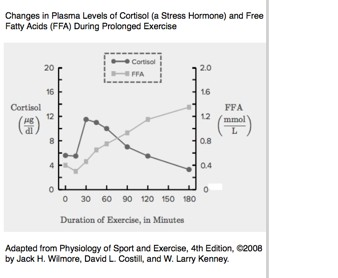Questions 1-11 are based on the following
passage.
Adapted from Nani Morgan, Michael R. Irwin, Mei Chung, and Chenchen Wang, "The Effects of Mind-Body Therapies on the Immune System." ©2014 by Nani Morgan et al.
Over the last two decades, mind-body therapies (MBTs),
including Tai Chi, Qi Gong, meditation, and Yoga have
received increasing awareness and attention from the
Line scientific community seeking to understand the safety and
5 efficacy of these widely used practices. According to the
2007 National Health Interview Survey, 19% of American
adults have used at least one mind-body therapy in the past
12 months. Currently, the National Center for
Complementary and Alternative Medicine designates MBTs
10 as a top research priority.
Previous work has shown that MBTs offer many
psychological and health functioning benefits including
reductions in disease symptoms, improvements in coping,
behavior regulation, quality of life, and well-being. In light
15 of these benefits, recent investigations have sought to better
understand the role of MBTs on physiological pathways such
as the immune system. It has been well-established that
psychological stress and depression impair anti-viral immune
responses and activate innate immunity or markers of
20 inflammation via effector pathways, such as the sympathetic
nervous system and the hypothalamus-pituitary-adrenal
(HPA) axis. In fact, behavioral interventions targeted at
alleviating stress, promoting heightened states of relaxation,
and encouraging moderate physical activity, have been
25 shown to bolster anti-viral immune responses and decrease
markers of inflammation, particularly among older adults or
adults experiencing high levels of psychological stress.
The efficacy of such behavioral interventions in
modulating the immune system suggests that MBTs may also
30 confer immunomodulatory benefits. Tai Chi, Qi Gong, and
Yoga are multi-dimensional behavioral therapies that
integrate moderate physical activity, deep breathing, and
meditation to promote stress reduction and relaxation, which
could potentially influence the immune system. Meditation,
35 including more integrative, mindfulness-based stress-
reduction programs, has also been shown to regulate
emotional and affective responses to stress, and therefore
may influence the immune system even in the absence of
physical activity.
40 To our knowledge, this study is the first comprehensive
review of the best available evidence, summarizing the
effects of MBTs on the immune system while focusing on
two aspects of immunity that are regulated by stress response
mechanisms, namely inflammation and anti-viral related
45 immune responses...Indeed, evidence accrued from 34
randomly controlled trials (RCTs) indicates that Tai Chi, Qi
Gong, meditation, and Yoga, both short- and long-term,
appear to reduce markers of inflammation and influence
virus-specific immune responses to vaccinations. Our
50 findings are supported by existing literature evaluating the
immunomodulatory effects of other types of behavioral
interventions including exercise, stress reduction, and mood
modifying approaches. For example, exercise, one of the
most widely-studied behavioral interventions, has been
55 shown to reduce chronic inflammation, enhance
immunological memory in the context of vaccination, and
even reduce sick days associated with the common cold and
other upper respiratory tract infections.
Apparently, powerful links exist between the brain and the
60 immune system, and psychosocial factors can directly
influence health through behavior. MBTs may buffer these
immune alterations through relaxation, stress reduction,
improved mood, and moderate physical activity. Behavioral
responses are therefore the key to activating neuroendocrine
65 and autonomic pathways, which in turn modulate the
immune system and have implications for susceptibility to a
variety of diseases. Thus, behavioral interventions that alter
immune responses provide _potent_ evidence for
psychological influences on immune function.